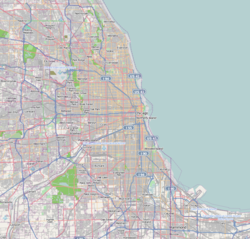| Beth Shalom B'nai Zaken Ethiopian Hebrew Congregation | |
|---|---|
| Religion | |
| Affiliation | Judaism |
| Rite | Black Hebrew Israelite |
| Ecclesiastical or organisational status | Synagogue |
| Leadership |
|
| Status | Active |
| Location | |
| Location | 6601 South Kedzie Avenue, Marquette Park, Chicago, Illinois 60629 |
| Country | United States |
| Coordinates | 41°46′24″N87°42′09″W / 41.7733333°N 87.7025°W |
| Architecture | |
| Founder | Rabbi Horace Hasan |
| Established | 1918 (as a congregation) |
| Website | |
| bethshalombz | |
Beth Shalom B'nai Zaken Ethiopian Hebrew Congregation, more commonly known as Beth Shalom B'Nai Zaken EHC, or simply Beth Shalom, abbreviated as BSBZ EHC, is a Black Hebrew Israelite [1] [2] [3] congregation and synagogue, located at 6601 South Kedzie Avenue, in Chicago, Illinois, in the United States. The synagogue is led by Rabbi Capers Funnye, the Chief Rabbi of the International Israelite Board of Rabbis, [4] and assistant rabbis are Avraham Ben Israel and Joshua V. Salter. [5] Beth Shalom is affiliated with the International Israelite Board of Rabbis. [6]
